
The grief and loss that we experience after the death of a loved one is a highly individualized and subjective experience. As the nation, rightly so, pauses to remember the sacrifice of those service members who have sacrificed their lives so that we may enjoy the freedoms that we have, we might forget the impact that each of those losses has on those that are left behind.
We might tend to forget the memorials that are in place that these brave men and women are not truly forgotten. We know of the awe-inspiring monuments surrounding the National Mall, but how often have we stopped and looked at them? How many of us have visited them, and taken the time to truly reflect on the impact of the sacrifice, not just on the nation as a whole, but on the individual?
The National Mall is designated as a location that houses “monuments, memorials, statues, and other commemorative works honor important personages, historical events, and the ideals of democracy.” The most significant monuments and memorials, in the context of both sacrifice and on this Memorial Day, are the World War II Memorial, the Korean War Veterans Memorial, and the Vietnam Veterans Memorial.
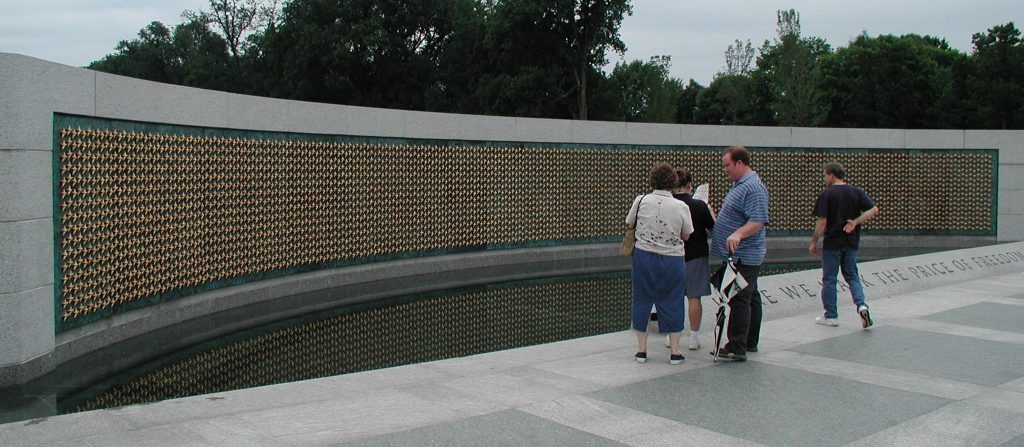
On a curved wall at the west end of the World War II memorial, there are over 4,000 gold stars placed over a reflecting pool. As indicated by the Price of Freedom plaque near the wall, each of these stars represent one hundred thousand service members who lost their lives or remain missing. The significance of this number is staggering. Nearly half a million lives lost, half a million sacrifices. Take a moment to imagine each of those individual stories: mothers, fathers, brothers, sisters, sons and daughters. Lives irrevocably changed. Children who grew up with the memories of their parents as a picture on the mantle, rather than as a hand to hold or a shoulder to cry on. The significance of the reflection indicates the sacrifice of the families, of the communities; for every representative star, there were 100,000 families that bore the pain of sacrifice, there were 100,000 buddies who continued to carry the memory of the lost brother or sister in arms. This is the purpose of Memorial Day.
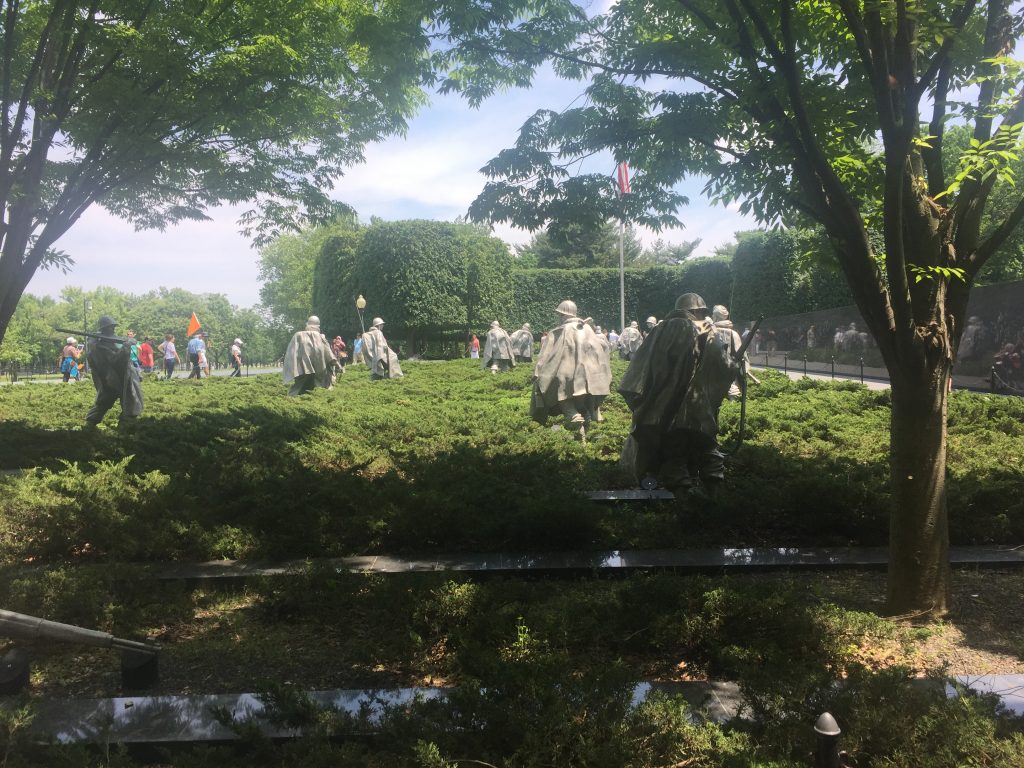
It has been noted that the Korean War Veterans Memorial is a haunting reminder of the sacrifice of those who fought and died in that war. As I stood behind this formation, the image of these Soldiers emerging from the darkness of shadows into the light of an open field impacts me on several levels. As a combat veteran, the idea of leaving the relative safety of cover and concealment into the danger of open space is anxiety-producing. These service members are not cowering in the dark, however, not keeping themselves protected by choosing safety, but instead advancing towards the objective. Another aspect is how we, as a nation, can move from the darkness of a lack of knowledge about the sacrifice that these brave men and women made and into the light of awareness. How we can understand the impact of this sacrifice, and what it means to our lives today. And the symbolism of the Korean War Veterans Memorial on individuals? What grunt, infantryman, ground pounder does not see themselves in this patrol? You can pick out the radio guy, the point man, the dude with no helmet (cause there’s always one of THOSE guys in any formation). By design, these service members on patrol represent each of the armed services involved in the Korean war, and the ethnic diversity of both the military and the nation. The inscription is there to remind us, Freedom is not in fact free. This is the purpose of Memorial Day.
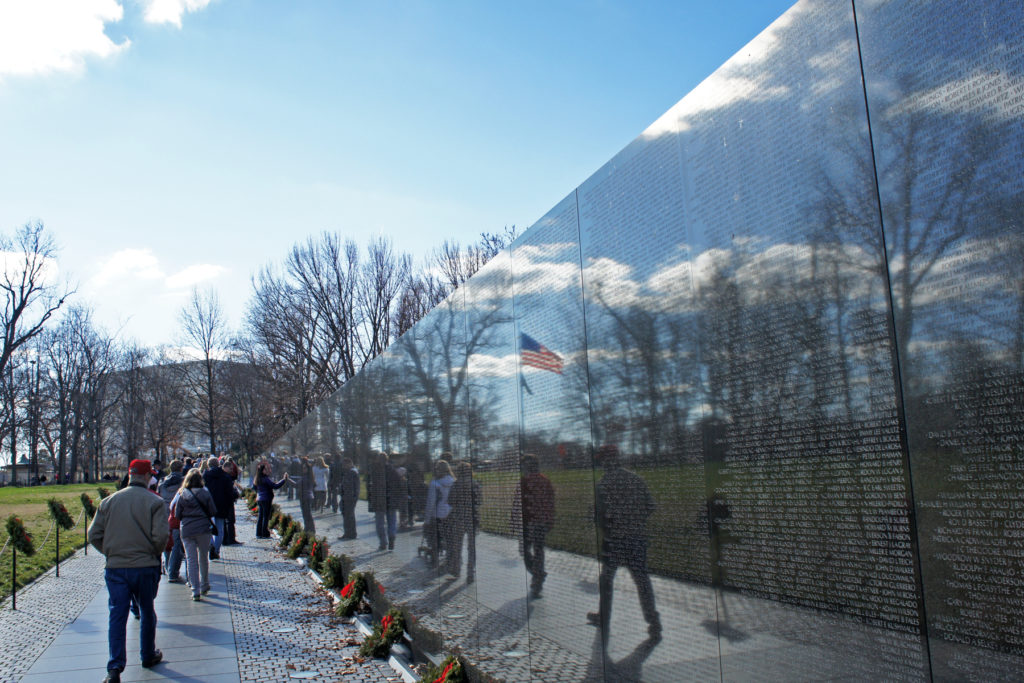
I am often struck, when I visit the Vietnam Memorial, how quiet it becomes. Surrounded by Washington D.C. traffic and the immense crowds at the nearby Lincoln Memorial, the Memorial seems to exist in a separate solomn place…and rightly so. Generationally, this conflict has a significant impact on many of us; My father and three of my Uncles served in Vietnam, and that legacy of service was passed on to many of us. Each of these names…much as the stars on the World War II memorial…represent lives forever changed, events that not only changed the course of history but changed the trajectory of entire families. The single rose, reverently place by a grateful visitor, may wither and fade…but the hand that placed that rose, the grateful heart that impelled that act, the tear that undoubtedly fell from the eye at the thought of such sacrifice and loss…those remain. Those are real. The inscription reads that these names are inscribed in the order they were taken from us…and that us has such depth and breadth that it can be hardly imagined. Us as a family. Us as a nation. Us, collectively, you and I sitting here reading this right now. They were taken from us, certainly, as much as they gave themselves for us. This is the purpose of Memorial Day.
I don’t get upset that there are those going through their day that seem to not realize what it’s all about. The human heart is resilient, the human mind protects itself. I recall the day that we lost SGT Wolf, one of my own personal losses that I think of often; on a large base like Fenty (Jalalabad), there were so many units that not everyone knew what had happened. I wanted to grab everyone I saw laughing, and shout in their face, “Hey! Don’t you know what the @#% is going on? What do you think you have to smile about?” I realized at that moment, seconds away from screaming my head off, that not everyone does know. This is my memory. This is my burden, and one that I bear gladly, for I would not want anyone else to feel this pain of loss…while also knowing that thousands, millions, around the nation are feeling the same thing on this day.
This is the purpose of Memorial Day.
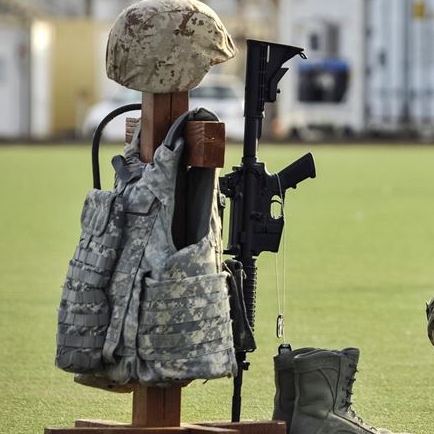
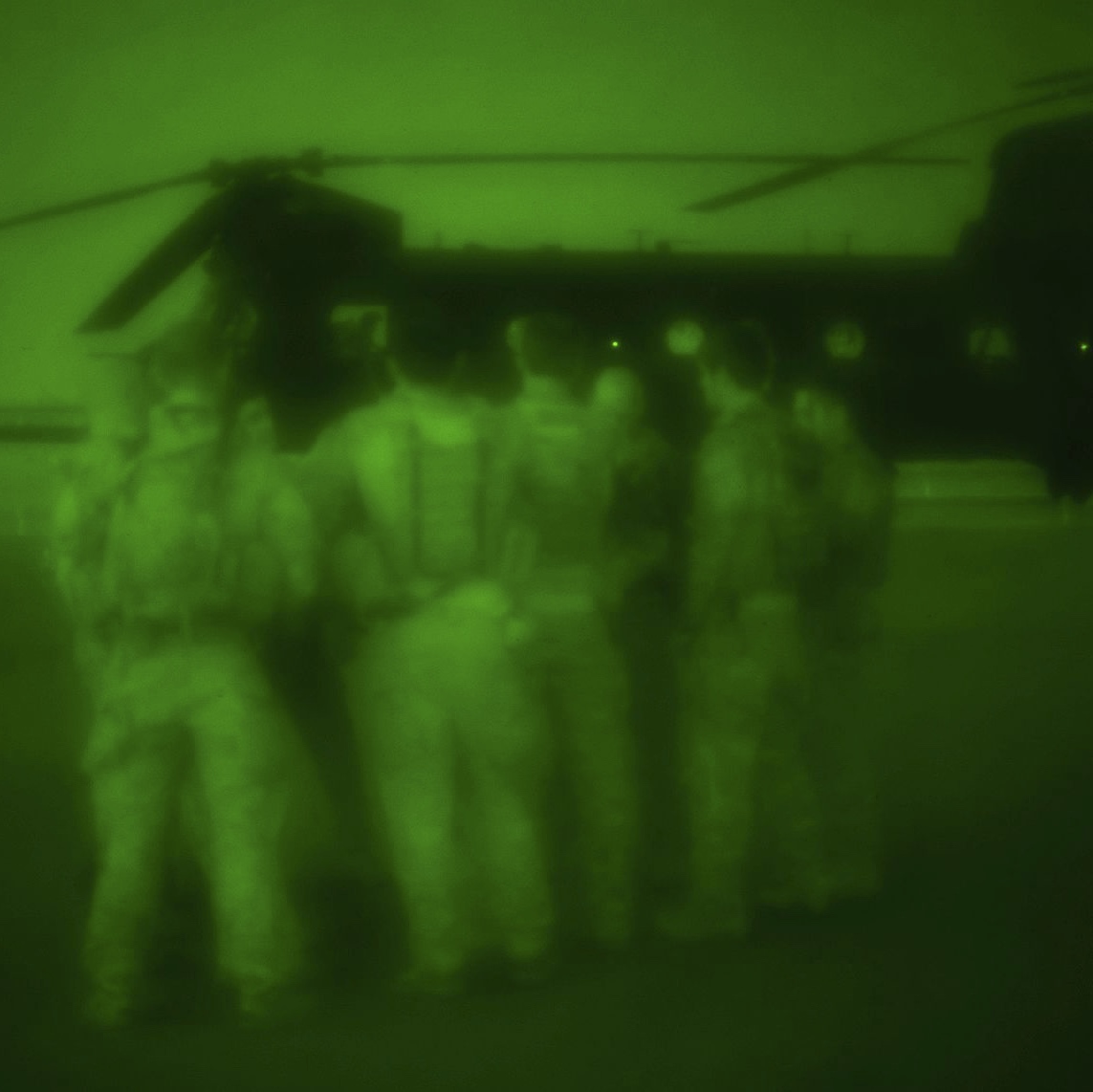
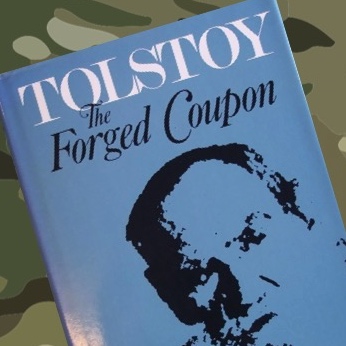
1 Comment
Theresa Danna · October 4, 2016 at 12:35 am
Well said!
Comments are closed.